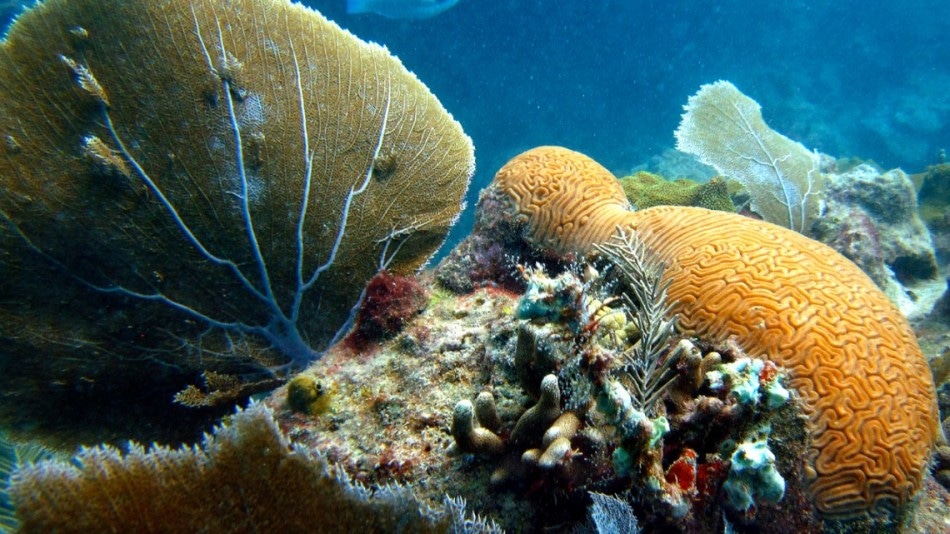Nov 20 2019
In an age of warming oceans, the copper metal is an emerging threat to the colorful, elegant sea fans that sway through the coral reefs in the waters near Puerto Rico.
 Sea fans gently sway in a healthy bed of coral. Image Credit: Allison Tracy/Provided.
Sea fans gently sway in a healthy bed of coral. Image Credit: Allison Tracy/Provided.
Published in the October 19th issue of the journal Ecological Applications, a Cornell-led study shows evidence of metal pollution causing danger to the soft coral sea fans.
We know warming oceans pose an existential threat to coral reefs around the world. Action to alleviate the impact of warming oceans is a priority, but understanding the role of pollutants in coral disease and mortality gives us more options for solutions.
Allison Tracy, Researcher, Cornell University
Tracy, PhD ’19, carried out this study along with Drew Harvell, professor of marine biology.
It is well known that plastics and microplastics are hazardous to the world’s oceans, but the effect of metal contamination is not properly understood, the scientists stated. Growing copper pollution can be due to marine paint leaching from boat hulls or agricultural runoff.
Within a period of one year, the scientists monitored 175 individual sea fan colonies with different levels of copper concentrations observed in the sediment at 15 coral reef locations around Puerto Rico. They discovered that reefs with higher copper concentrations in the sediment suffered a decrease in recovery from multifocal purple spots disease—a disease that could be a trouble to the sea fans.
In the lab, Tracy learned that at first, sea fans initiated an immune reaction to a detrimental infection at low levels of copper and temperature stress. However, when copper concentrations increased, the sea fans’ immune response was futile, which indicates that copper stressed the sea fans and hindered their immune potential, she said.
The patterns we saw in immune markers are important because they show a mechanism through which copper and warming oceans can impair the corals’ health.
Allison Tracy, Researcher, Cornell University
This study provided innovative data on the function of environmental stressors in coral disease, and may offer a toolkit for battling the coral disease on a local scale.
We can’t manage the climate damage to coral reefs, until we better understand how pollution and disease magnify the impacts of heat stress. Although healthy corals in thriving ecosystems also experience low levels of disease, the concern is that changing ocean conditions and increased pollution have led to increased disease outbreaks. As a result, corals may be losing the battle with their pathogens as ocean stressors tip the balance in favor of disease.
Drew Harvell, Professor of Marine Biology, Cornell University
Ernesto Weil, professor of marine science at the University of Puerto Rico, Mayagüez, is a co-author of the study and partnered with Tracy and Harvell on field surveys and experiments that were carried out at UPRM’s Isla Magueyes Laboratories.
This study was funded by the National Science Foundation, the Cornell Atkinson Center for Sustainability, The American Academy of Underwater Sciences, The Andrew W. Mellon Foundation, and Cornell’s Department of Ecology and Evolutionary Biology.